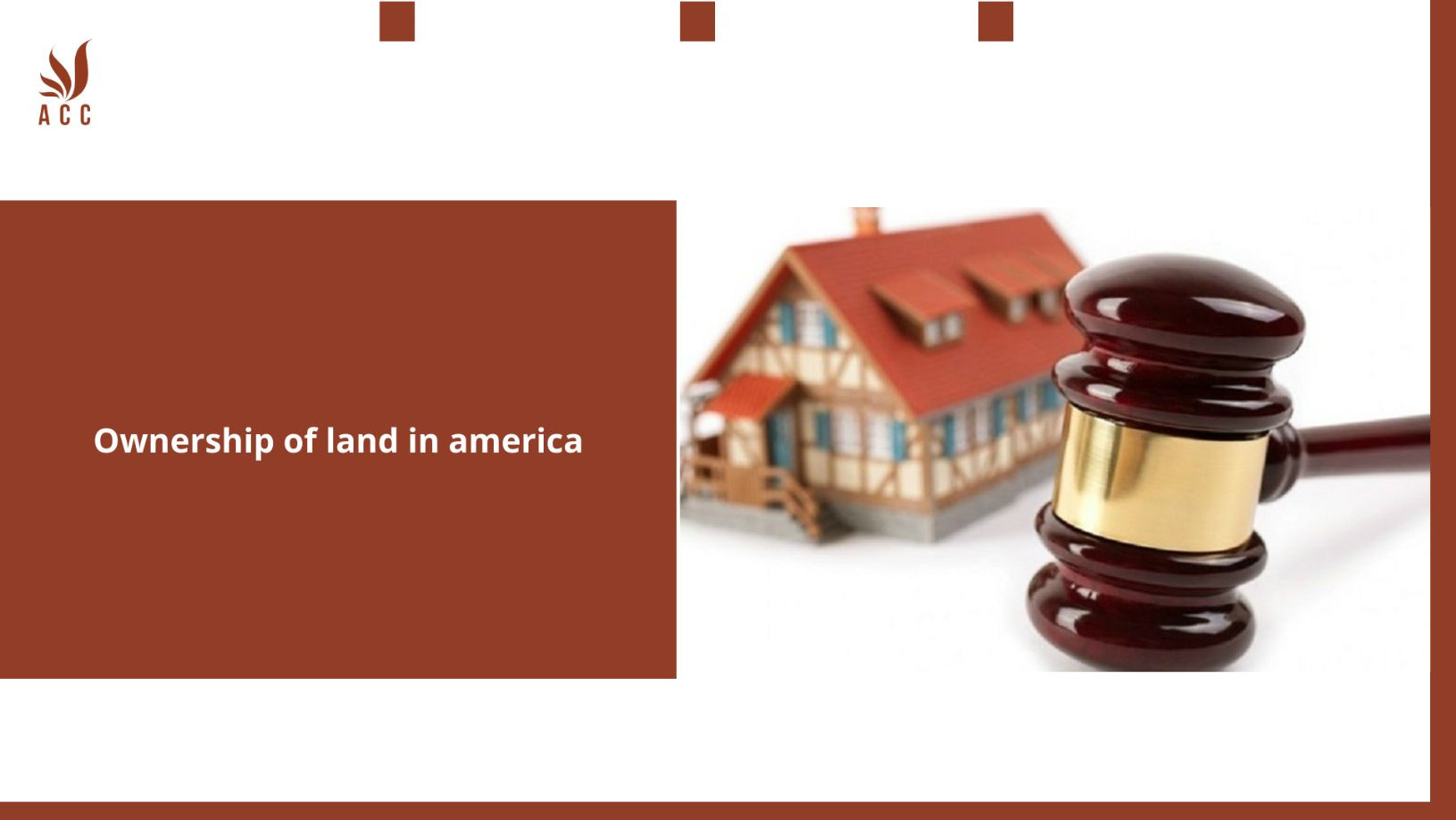Land ownership in the United States is governed by a combination of federal, state, and local laws. The U.S. has a well-established system of land ownership and property rights. Here are some key points regarding land ownership in America:

1. Fee Simple Ownership:
Fee simple ownership, also known as freehold ownership, is the most common form of land ownership in the U.S. When you own land in fee simple, you have the most comprehensive and complete bundle of property rights, including the right to possess, use, and dispose of the land.
2. Real Property:
In the U.S., land and anything permanently attached to it, such as buildings, are collectively referred to as "real property." Real property ownership is subject to various legal rights and obligations.
3. Deeds:
Land ownership is typically established and transferred through deeds. When you buy property, you receive a deed that legally conveys the property to you. The most common deed is a warranty deed, which guarantees that the seller has clear title to the property.
4. Title Insurance:
Title insurance is often purchased to protect against defects in the title, such as undisclosed liens or disputes over property boundaries.
5. Property Taxes:
Property owners are generally required to pay property taxes to the local government. The amount is determined based on the property's assessed value.
6. Zoning and Land Use Regulations:
Local governments, including cities and counties, have the authority to regulate land use through zoning ordinances. These regulations dictate how land can be used, including residential, commercial, industrial, and agricultural purposes.
7. Eminent Domain:
Eminent domain is the government's power to take private property for public use. The property owner is typically compensated at fair market value.
8. Private Covenants:
Some properties may be subject to private covenants, conditions, and restrictions (CC&Rs) imposed by homeowners' associations or developers. These CC&Rs may place additional limitations on land use.
9. Mineral and Water Rights:
In some cases, land ownership may not include mineral rights (e.g., oil, gas, or minerals) or water rights, which can be sold separately from the surface rights.
10. When using ACC Law Firm's land-related services, entrepreneurs will receive
When using ACC Law Firm's land-related services, entrepreneurs will receive expert advice and assistance in navigating various legal aspects of land ownership and transactions. This includes guidance in property acquisitions, leases, zoning regulations, land use planning, and any other land-related legal matters. ACC Law Firm's team of experienced attorneys will provide personalized support to entrepreneurs, ensuring compliance with applicable laws and regulations, protecting property rights, and optimizing the value of their land investments.
11. Q&A
Question 1: How does land ownership work in the United States?
Answer 1: Land ownership in the United States typically follows a system of "fee simple" ownership, where the landowner has complete rights over the property, subject to certain legal limitations. This includes the right to use, sell, lease, and bequeath the land.
Question 2: What legal documents are used to establish land ownership in America?
Answer 2: Land ownership is established through legal documents, such as a deed. A deed is a written instrument that conveys ownership from one party (the grantor) to another (the grantee). Recording the deed with the county or local land records office establishes a public record of ownership.
Question 3: Are there any restrictions on land ownership in the United States?
Answer 3: Yes, there are restrictions on land ownership in the United States. These may include zoning laws, environmental regulations, property taxes, and eminent domain, which allows the government to acquire private land for public use with just compensation. Additionally, certain land can be subject to restrictions due to historic preservation or conservation purposes.
Question 4: How can one verify land ownership in the United States?
Answer 4: To verify land ownership in the United States, you can:
- Review the property's deed, which is typically available through local land records offices.
- Conduct a title search or obtain a title insurance policy to confirm ownership and any potential encumbrances.
- Consult with a real estate attorney or a title company for assistance in verifying ownership and resolving any title issues.
Nội dung bài viết:






Bình luận